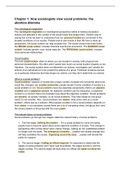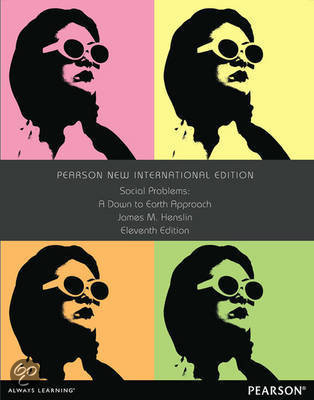Samenvatting
Samenvatting Social Problems Pnie A Down To Earth App, ISBN: 9781292039862 Introductie interdisciplinaire sociale wetenschap ()
- Instelling
- Universiteit Utrecht (UU)
Engelse verkorting-samenvatting van het boek ''Social Problems: A down-to-earth-approach'' van J.M. Henslin. Te gebruiken voor alle edities, zolang er rekening gehouden wordt met de titel van het hoofdstuk. Besproken hoofdstukken: 1. How sociologists view social problems: the abortion dilemma ...
[Meer zien]





